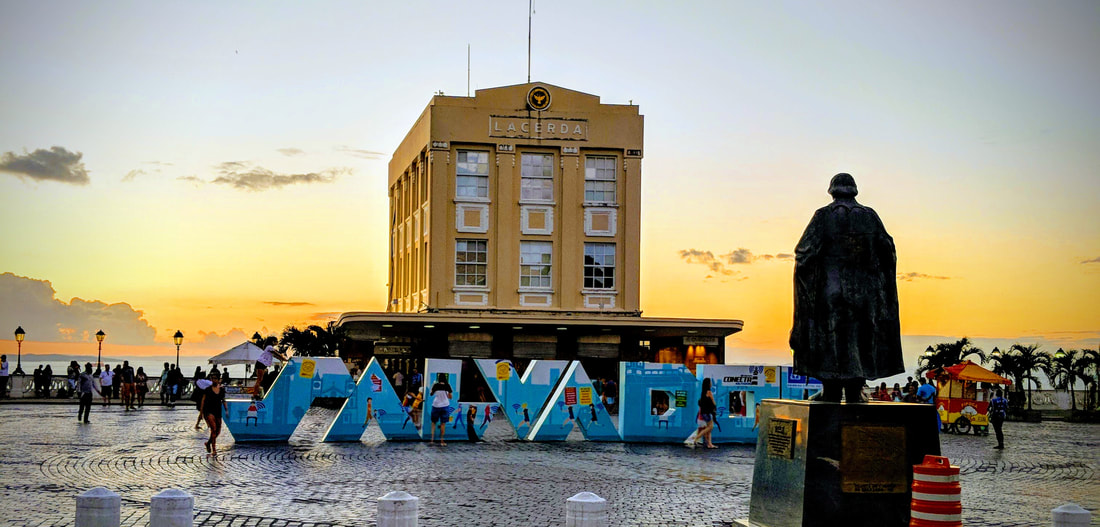|
Welcome to the third blog post about Brazil in preparation to our trip in May 2020. This post I will share one interesting CNN segment that I saw this week and a podcast that I really like when it comes to understanding Brazilian politics and society. First, the CNN segment: it was a brief report on cachaça, Brazil's spirit. People always asks me what is the difference between rum and cachaça and I never knew how to explain it, this article helped me with that. This segment also reminded me of a Timbalada song called "Cachaça". The kind of music Timbalada plays is very much the soul of Bahia and Salvador. We will visit percussion schools and have classes that mirror their music style. I have been meaning to post about Explaining Brazil for a couple of weeks. This is a great resource produced by phenomenal reporters, dealing with many issues. I will post a link to the podcast on Sticher (here) but you can find in any podcast aggregator. Below I share links to the episodes that relate directly to our course themes.
This gives you a lot of interesting and easy to access information about Brazil. If you are already into podcasts, just add this one to your list! WHAT I AM LISTENING TO RIGHT NOW: Elza Soares- A Carne
0 Comments
Feliz Ano Novo! With the new year I want to share what some international sources are saying about the first year of President Jair Bolsonaro. Bolsonaro was elected president of Brazil in October of 2018, taking power January 1st, 2019. Today marks the first year of Bolsonaro's administration. We will talk more about him, his election, and controversies surrounding his presidency when we meet in class in March. For now I just wanted to introduce you to him by sharing some of the reports and opinion pieces about his first year from some English-language sources. I think understanding more about Bolsonaro will be especially important in May when we are in Brazil since students will be staying with host families for three weeks. Bolsonaro is a galvanizing and polarizing figure, and I think it will be crucial for students to understand his rise so they can best ask questions about the current political climate in Brazil. We will be in Salvador, a city where Bolsonaro lost to PT candidate Fernando Haddad in all precints during the presidential runoff, even though he won the national vote with almost 55% of the valid votes. Reading about the national scene and then understanding the political views of baianos and soteropolitanos (how people who live in Salvador are known) will be an interesting and important aspect of the fieldwork students will be conducting. So here are some headlines about Bolsonaro's first year:
"My country was very close to socialism, which led us to a situation of widespread corruption, serious economic recession, high crime rates and continuous ceaseless attacks against family and religious values that are part and parcel of our traditions," Bolsonaro said in a speech in September before the UN General Assembly in New York. We will revisit Bolsonaro many times in this blog and in our class. This was just a first taste for those who may not be following Brazilian politics that close. In my next post I will share a podcast that I think can also help you better understand Brazil before our time in the country comes in May. Enjoy the rest of the break! WHAT I AM LISTENING TO RIGHT NOW: Drik Barbosa, Emicida, and Rael- Luz |
Archives
June 2024
Categories
All
|

 RSS Feed
RSS Feed
